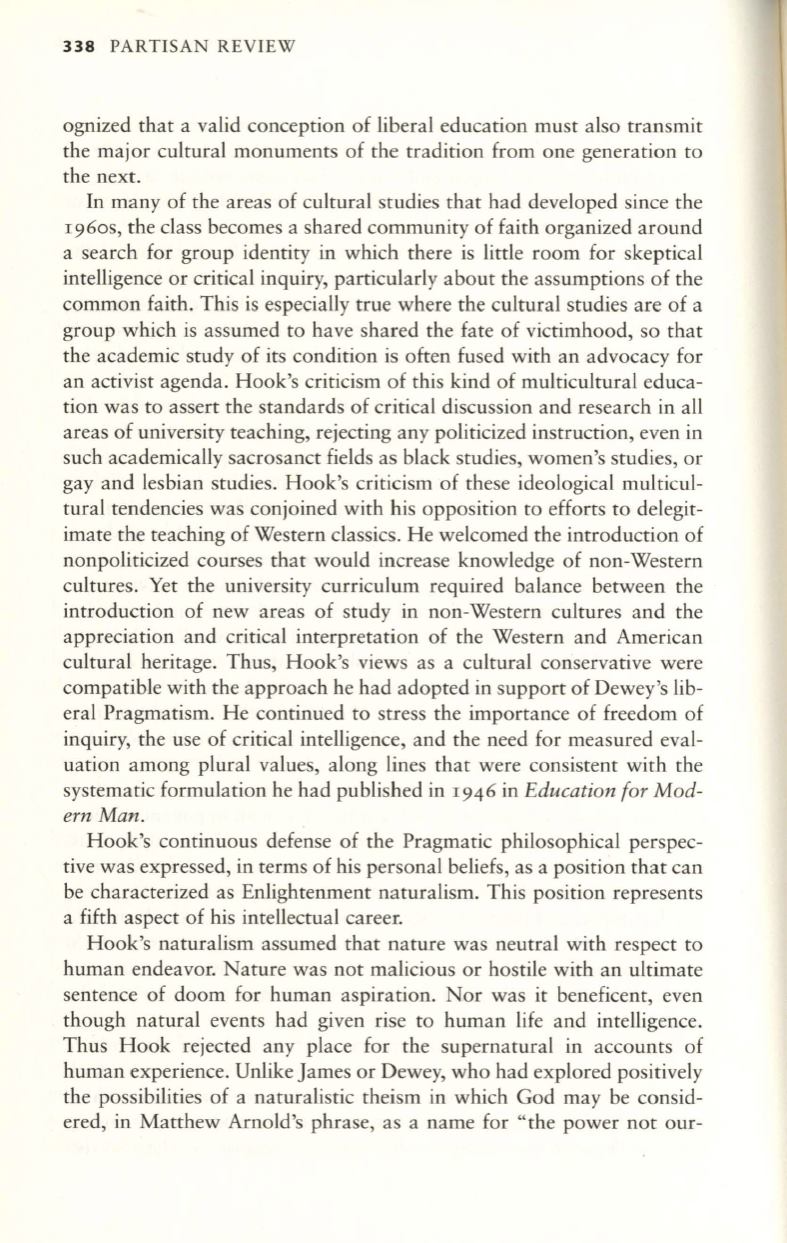
338
PARTISAN REVIEW
ognized that a valid conception of liberal education must also transmit
the major cultural monuments of the tradition from one generation to
the next.
In
many of the areas of cultural studies that had developed since the
I960s, the class becomes a shared community of faith organized around
a search for group identity
in
which there is little room for skeptical
intelligence or critical inquiry, particularly about the assumptions of the
common faith . This is especially true where the cultural studies are of a
group which is assumed to have shared the fate of victimhood, so that
the academic study of its condition is often fused with an advocacy for
an activist agenda. Hook's criticism of this kind of multicultural educa–
tion was to assert the standards of critical discussion and research in all
areas of university teaching, rejecting any politicized instruction, even in
such academically sacrosanct fields as black studies, women's studies, or
gay and lesbian studies. Hook's criticism of these ideological multicul–
tural tendencies was conjoined with his opposition to efforts to delegit–
imate the teaching of Western classics. He welcomed the introduction of
nonpoliticized courses that would increase knowledge of non-Western
cultures. Yet the university curriculum required balance between the
introduction of new areas of study in non-Western cultures and the
appreciation and critical interpretation of the Western and American
cultural heritage. Thus, Hook's views as a cultural conservative were
compatible with the approach he had adopted in support of Dewey's lib–
eral Pragmatism. He continued to stress the importance of freedom of
inquiry, the use of critical intelligence, and the need for measured eval–
uation among plural values, along lines that were consistent with the
systematic formulation he had published in I946 in
Education for Mod–
ern Man .
Hook's continuous defense of the Pragmatic philosophical perspec–
tive was expressed, in terms of his personal beliefs, as a position that can
be characterized as Enlightenment naturalism. This position represents
a fifth aspect of his intellectual career.
Hook's naturalism assumed that nature was neutral with respect to
human endeavor. Nature was not malicious or hostile with an ultimate
sentence of doom for human aspiration. Nor was it beneficent, even
though natural events had given rise to human life and intelligence.
Thus Hook rejected any place for the supernatural in accounts of
human experience. Unlike James or Dewey, who had explored positively
the possibilities of a naturalistic theism in which God may be consid–
ered, in Matthew Arnold 's phrase, as a name for "the power not our-


